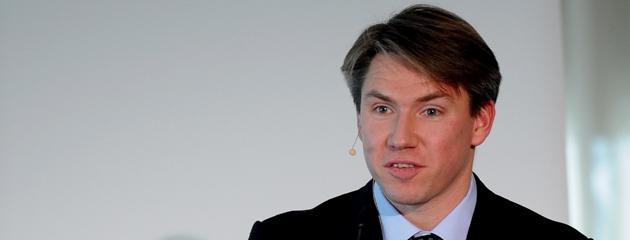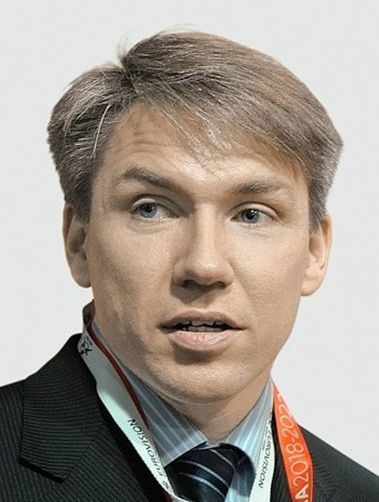By David Gold
February 29 – Alexey Sorokin (pictured), the chief executive of Russia 2018, has told insideworldfootball that he would prefer to avoid having teams flying long distances during the group stage of the competition.
World Cup 2014 hosts Brazil unveiled their match schedule last year and it revealed that some teams would face the problem of having to travel thousands of kilometres during the group stage, while others have comparably easy journeys.
One team drawn in Group H for Brazil 2014 will have fixtures in Belo Horizonte, São Paulo and Rio de Janeiro, translating to a combined travel distance of just 700 kilometres.
Just as fortunate are the team drawn in Group G which will play in the three closely situated north eastern cities of Fortaleza, Recife and Salvador.
By comparison, the hosts Brazil will have three group games with a combined distance of almost 4,000km between them.
One of their opponents in the group stage will have things even worse, travelling from São Paulo in the south after their first match to Manaus in the north west, finishing off in Recife, clocking up thousands of kilometres on their journeys.
Russia has similarly vast distances between some of its host cities – for example, Kaliningrad, if chosen to host matches, is actually between Lithuania and Poland, and 2,500km from Yekaterinburg in the east, which in turn is another 2,000km from Sochi in the south.
Though no decisions have yet been taken, Sorokin says it would be ideal for teams to be playing in either the same or neighbouring regions.
“Certainly it wouldn’t make sense [to travel across Russia],” he told insideworldfootball.
“We don’t know now, but for me personally it wouldn’t make sense for teams to fly across the entire territory of the competition.
“It would make sense to play in only two bordering clusters.”

Sorokin refused to criticise Brazil’s preparations, insisting that it would not be fair due to the different stage they were both at with planning for their respective World Cups, and said that the two could not be compared despite the geographical similarities.
Though the host cities and stadia to be used for Russia 2018 have yet to be confirmed, they will be divided into four main clusters.
The first will be the northern cluster of Kaliningrad – if selected – and St Petersburg, and the second will be Moscow and the central region.
The third is the Volga River cluster running from the centre to the south of Russia, which could include Yaroslavl, Nizhny Novgorod, Kazan, Saransk, Samara and Volgograd, depending on which are selected.
The southern cluster is made up of Sochi, Krasnodar and Rostov-on-Don, and then there is the stand alone city of Yekaterinburg in the east, the possible host of a semi-final.
“The perfect situation,” Sorokin said, “would be to have St Petersburg and Moscow, or Moscow and the Volga cluster – not St Petersburg and Sochi for example.
“It’s linked to the match schedule [and] the overall plan for the event, to be done at a later stage.”
Contact the writer of this story at zib.l1745190605labto1745190605ofdlr1745190605owedi1745190605sni@d1745190605log.d1745190605ivad1745190605
Related stories
November 2011: Russia agree deal with Transport Directorate for 2018 World Cup
October 2011: Russia and Singapore create joint airport venture ahead of 2018 World Cup
May 2011: Plan drawn up for Russia 2018 high speed rail network
April 2011: Concerns raised over distances between Russia 2018 venues
January 2011: Putin demands Russia builds high-speed rail network for 2018 World Cup

